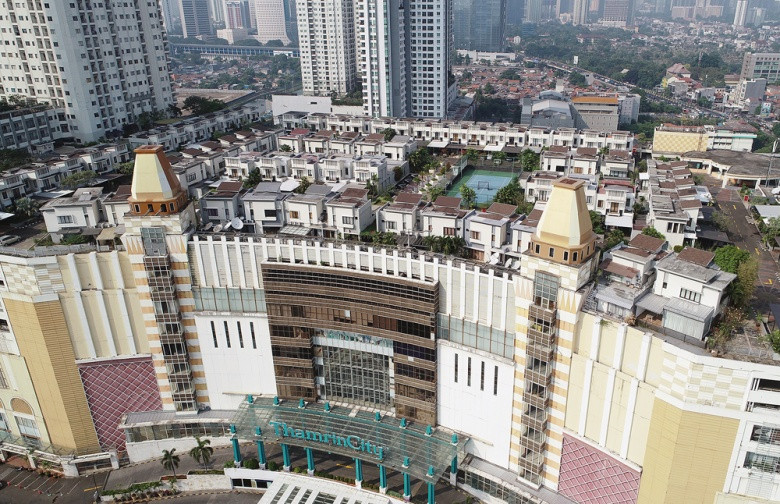Popular Reads
Top Results
Can't find what you're looking for?
View all search resultsPopular Reads
Top Results
Can't find what you're looking for?
View all search resultsGovt housing subsidy program hampers market growth, World Bank says
Change text size
Gift Premium Articles
to Anyone
T
he government’s housing subsidy program designed to resolve the country’s mounting backlog might backfire by hampering property industry growth and leading to the construction of lower quality homes, the World Bank has warned.
World Bank housing specialist Dao Harrison warned on June 25 that the government’s ongoing housing mortgage (KPR) subsidy programs such as the Housing Financing Liquidity Facility (FLPP) and interest rate subsidies for loan installments (SSB), which are reserved for landed houses at around Rp 160 million (US$11,306), slowed lending growth and discouraged developers from building high-quality homes.
“Our survey shows that KPR consumers aspire to purchase houses at a far higher price at Rp 300 million. Developers could build better homes worth an additional Rp 140 million on top of the maximum KPR property price and lenders could provide more lending to homeowners, but they don’t,” Harrison said during an online presentation of World Bank’s latest report published on June 22.
In addition, the KPR property price cap has also led to developers building houses that are located outside of metro areas to bring down prices. According to World Bank data, 57 percent of FLPP-subsidized housing units were located in rural areas in 2017, a huge increase from 36 percent in 2016.
Hence, the housing market’s share of national GDP has stagnated at 3 percent for the last five years, falling behind neighboring countries such as the Philippines and Cambodia, where the housing market’s share of GDP is above 4 percent, Harrison said.
The government has been struggling to reduce the country’s housing backlog, which stood at 7.6 million in 2015. President Joko “Jokowi” Widodo’s administration aims to build 1.25 million houses this year to fulfill its commitment to build 1 million houses per year, partially aided by the mortgage subsidy program. Since 2015, the beginning of Jokowi’s tenure, around 4.8 million houses have been constructed, and his administration plans to build an additional 3.9 million houses by 2024.
In April, the government rolled out new housing loan subsidies amid the COVID-19 pandemic for 175,000 low-income families nationwide and increased the salary ceiling for eligible recipients to Rp 8 million for all types of housing from the previous Rp 4 million for landed houses and Rp 7 million for low-cost apartments.
It has also launched a public housing savings program (Tapera), which requires employers and workers to contribute to a mortgage loan scheme similar to universal healthcare insurance.
However, the lower-than market interest rate made possible by the subsidy has also made it impossible for private lenders to compete in the housing market, the World Bank warned.
The mortgage subsidy allows eligible low-income households to pay mortgage interest rates of 5 percent for a 20-year tenure, far lower than private banks interest rates of around 7 to 9 percent for the first three to five years, the World Bank highlighted.
“The subsidy program is designed to distort the housing market, as lenders cannot compete against the FLPP and SSB schemes,” Harrison said.
The Washington-based development lender also warned that the SSB loan program mechanism created Rp 7.5 trillion in future liability per year from interest gap payments for 140,000 homes. Between 2015 and 2018, the government accumulated Rp 30 trillion in future liabilities, the World Bank estimates.
Responding to the report, the Public Works and Housing Ministry’s financing strategy director Herry Trisaputra Zuna stated that the housing market still required the government’s intervention in the form of subsidies.
“The housing market is not ideal, so we cannot rely solely on the market and need to make some interventions,” he said during the same webinar.
Herry said the World Bank’s recommendation could also not address the government’s main issue with the country’s housing program, which was lack of funding.
“Our problem is we have limited money now, and that’s why we have to modify installments for the mortgage-linked down payment assistance [BP2BT] program,” he said.
Real Estate Indonesia (REI) also stated in April that the sector relied heavily on subsidized housing programs, which account for half of the industry’s revenue, according to the association members data.










